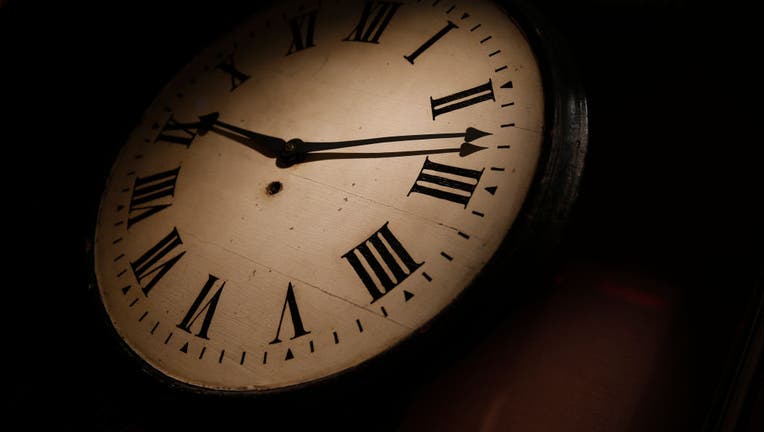Texas lawmakers approve permanent daylight saving time, but the legislative fight isn't over

FILE - A clock face on display at the Clockmakers' Museum, part of the Science Museum in London.
AUSTIN - Texas lawmakers approved a bill that would put the state on daylight saving time permanently, but clocks will continue to change until Congress takes action.
Texas passes daylight saving time bill
Dig deeper:
House Bill 1393 would allow Texas to observe daylight saving time permanently, meaning Texans would not have to adjust their clocks twice a year.
Under the bill introduced by Conroe Republican Will Metcalf, the standard time in the state will be referred to as "Texas Time."
HB 1393 passed the Senate on Thursday after passing the House in April.
The bill now heads to Gov. Abbott's desk for approval.
Awaiting Congressional Action
What's next:
The Texas bill only goes into effect if the United States Congress passes a law to observe daylight saving time year-round.
Currently, federal law requires daylight saving time to begin and end on certain dates.
In 1966, the U.S. Congress passed the Uniform Time Act, which allows states to either implement daylight saving time or opt out, while requiring statewide consistency. The act also mandates the start and end dates for daylight saving time across the country.
Under the law, states can choose to stay on standard time year-round, but cannot observe permanent daylight saving time.
If signed by Governor Abbott, Texas will join 18 other states with similar laws that will trigger change if the law is changed at a federal level.
Ending daylight saving time

Tell It To Tim: Goodbye to a Cowboy, Daylight Saving Time for everyone
Viewers say goodbye to a Dallas Cowboys and hello to Daylight Saving Time in this week's Tell It To Tim.
The backstory:
Every year there’s talk about ending the time change.
In December, then-President-elect Donald Trump promised to eliminate daylight saving time.
For the last several years, a bipartisan bill named the Sunshine Protection Act to make daylight saving time permanent has stalled in Congress; it has been reintroduced this year.
The other side:
DST allows for sunnier evenings over the spring and summer. The practice started in the U.S. in 1918 during World War I as a way to conserve fuel.
By the numbers:
The majority of Americans, 54%, say they are ready to do away with the practice, according to a Gallup poll from January.
Americans most commonly said they’d prefer keeping standard time the whole year (48%), even if it meant losing sunlight in the summertime.
The Source: Information in this article comes from the Texas Legislature, comments by President Trump, a January Gallup poll, and past coverage from FOX TV Stations.

